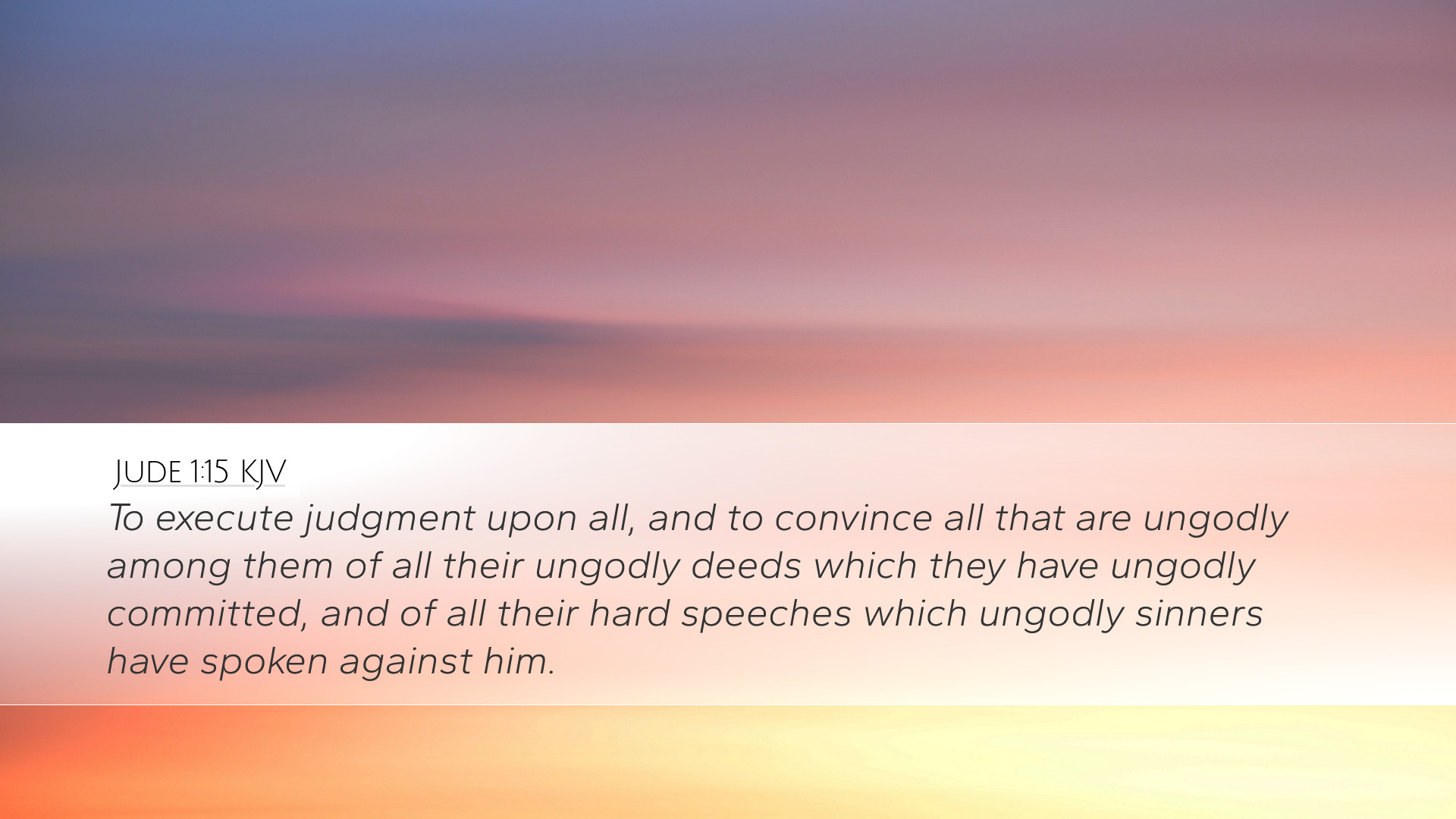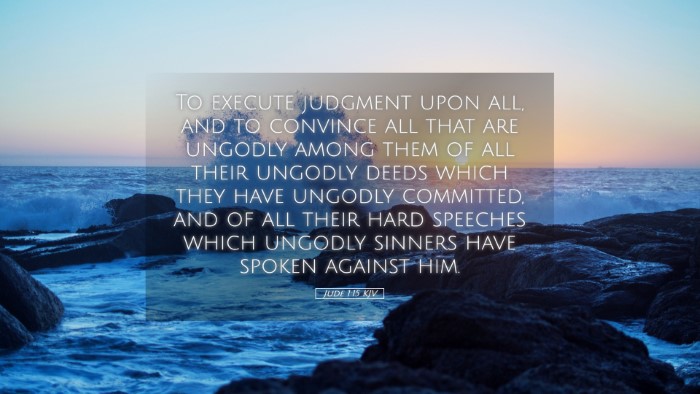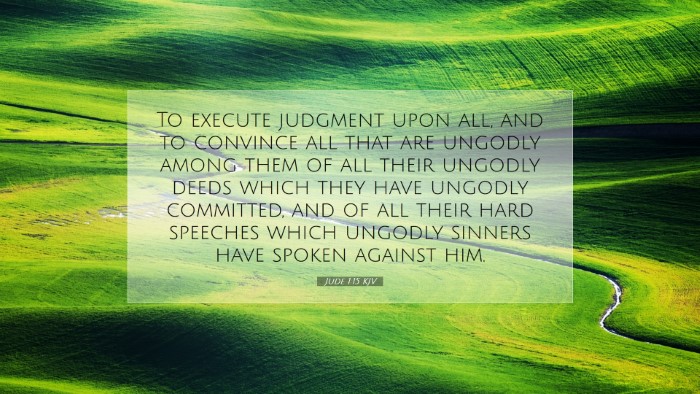Commentary on Jude 1:15
Jude 1:15 reads, "To execute judgment upon all, and to convince all that are ungodly among them of all their ungodly deeds which they have ungodly committed, and of all their hard speeches which ungodly sinners have spoken against him."
Contextual Overview
The Epistle of Jude serves as a profound warning against apostasy and the moral decay that can infiltrate the church. This verse is situated in a passage that reflects Jude's concern over false teachers who have entered the Christian community. The verse pointedly addresses the ultimate judgment that awaits such individuals, emphasizing God's righteous response to their ungodliness.
Matthew Henry's Insights
Matthew Henry emphasizes the seriousness of divine judgment as articulated in this passage. He asserts that God's judgment is not arbitrary but rather a reflection of divine justice. Each ungodly deed and harsh word spoken against God will be accounted for:
- Judgment as Certainty: Henry points out that judgment is a certainty; it is not merely a possibility. The phrase “to execute judgment upon all” reinforces that divine consequences are inevitable.
- Nature of the Judged: He highlights that the focus of this judgment is on “ungodly” individuals, characterizing their deeds as repeatedly wicked. The repetition of "ungodly" underscores the pervasive nature of their transgressions.
- Hard Speeches: Henry notes that the “hard speeches” refer to the blasphemies or insolent words spoken against God. This signifies a hearts' disposition that is antagonistic towards the divine.
Adam Clarke's Commentary
Adam Clarke provides a theological framework regarding the motivations behind God's judgment:
- Purpose of Judgment: Clarke asserts that the intent behind executing judgment is not merely punitive but also redemptive, serving to reveal the truth about sin and ungodliness.
- Collective Accountability: He expands upon the “all” mentioned in the text, suggesting that this speaks to both individuals and groups, underscoring that no one is exempt from divine scrutiny when engaging in ungodly behavior.
- Historical Context: Clarke references similar judgments in biblical history, drawing parallels to instances where God intervened decisively against wickedness, thus reinforcing God’s unchanging moral order.
Albert Barnes' Perspective
Albert Barnes takes a closer look at the language and implications of this verse:
- Emphasis on Conviction: Barnes highlights the role of conviction in the judgment process. The term “convince” implies a revelation of truth, thereby illustrating God’s intention for individuals to recognize their own wrongdoing.
- Divine Authority: He underscores the authority through which judgment is executed. This signifies that it is not merely human scrutiny but divine assessment that holds eternal consequences.
- Intercessory Implications: Barnes reflects on the spiritual implications of the passage, encouraging believers to engage in prayer for those enveloped in ungodliness, as God's desire is for all to come to repentance.
Key Themes and Applications
This verse encapsulates several important themes significant for theological reflection and pastoral application:
- The Just Nature of God: God is portrayed as a righteous judge who discerns between good and evil. It applies to both contemporary and ancient contexts, encouraging believers to uphold a standard of holiness.
- Call to Holiness: Jude's message serves as a reminder of the need for the church to maintain purity and integrity, resisting the seductions of false teaching and moral compromise.
- Awareness of Judgment: The awareness that ungodliness invokes divine judgment can spur individuals and communities towards repentance and renewal in faith.
Conclusion
Jude 1:15 holds rich theological significance through its proclamation of God’s impending judgment against ungodliness and its implications for those who follow Christ. Through insights from renowned commentators, one recognizes the pressing need for vigilance within the church and individual lives. The dual themes of judgment and mercyfulness call for a balanced approach to confronting sin while extending grace, reminding all of God's desire to redeem rather than solely to punish.


